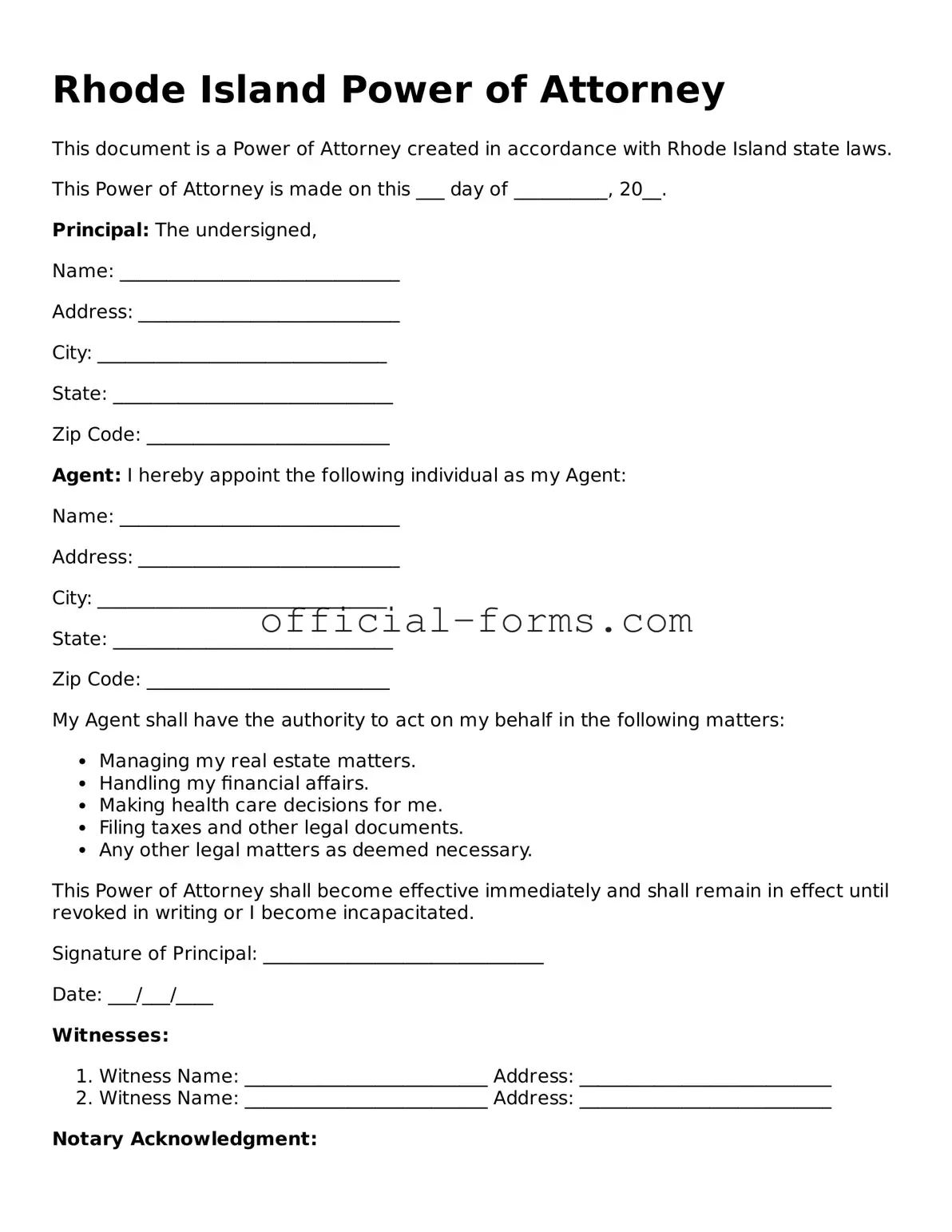Official Rhode Island Power of Attorney Document
A Power of Attorney form in Rhode Island is a legal document that allows one person to appoint another to make decisions on their behalf. This can include financial, legal, or medical decisions, depending on the type of authority granted. Understanding how this form works is essential for anyone looking to ensure their wishes are honored when they cannot act for themselves.
Open My Power of Attorney Now

Official Rhode Island Power of Attorney Document
Open My Power of Attorney Now
Don’t leave your form incomplete
Finish Power of Attorney online quickly from start to download.
Open My Power of Attorney Now
or
➤ PDF
